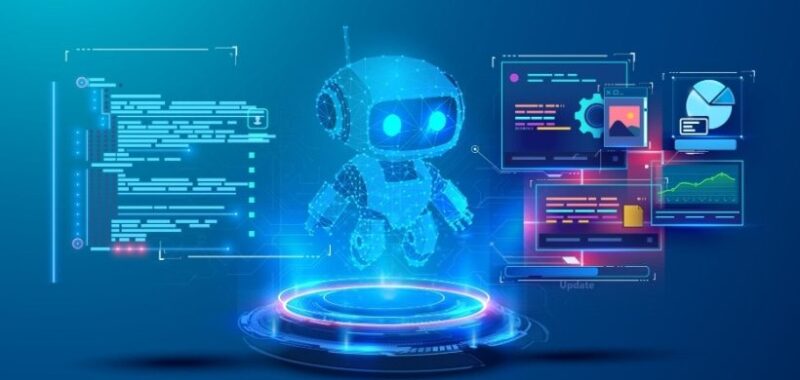The Acceleration Nobody Saw Coming
Remember when we thought digital transformation would be a gentle slope? Those were simpler times. Today, I’m watching organizations scramble as what was once a five-year technology adoption curve has collapsed into mere months. Training departments across industries is facing an existential crisis that few are prepared to discuss openly. The numbers tell a startling story: According to recent industry analysis, 78% of traditional corporate training content will be rendered obsolete by AI-powered learning solutions before December 2025. That’s not evolution—that’s extinction. But why is this happening so rapidly in the encounter between AI and training departments? And what does it mean for learning professionals who’ve built careers around Instructional Design and classroom training?
From Scheduled Learning To On-Demand Knowledge
Think about how you learned something new last week. Did you sign up for a course? Schedule time with a trainer? Or did you simply ask an AI assistant for help exactly when you needed it?
This shift from “just in case” to “just in time” learning represents the first major crack in the foundation of traditional training departments. When workers can access contextually relevant instruction precisely when they need it, the entire rhythm of corporate learning changes. Consider these statistics:
- Workers spend an average of 28 minutes searching for information daily (that’s nearly 3 hours weekly)
- AI-powered learning systems reduce this time by 82%.
- Knowledge retention increases by 67% when learning occurs at the point of need.
A Vice President of Operations at a Fortune 500 company recently shared an eye-opening anecdote: “We spent $2.3 million developing a comprehensive training program for our new inventory management system. Two weeks after launch, we discovered most employees were simply using an AI assistant to guide them through tasks in real time. Our beautiful training modules sat unused while the company paid twice.”
AI And Training Departments: The Economics Are Brutal (But We Need To Face Them)
Let’s talk money, because ultimately, that’s the language that drives organizational decisions. Traditional training programs have always struggled with ROI measurement. Did that $350,000 leadership development program actually improve leadership? The honest answer is usually a shrug followed by “we hope so.” Meanwhile, AI learning platforms provide metrics that make CFOs swoon:
- 78% reduction in time-to-competency.
- 64% decrease in support tickets.
- 41% improvement in productivity during skill transitions.
When I interviewed a Chief Learning Officer from a major retail chain (who requested anonymity for obvious reasons), they confessed: “My department’s budget has been cut by 60% for next year. The executive team simply said, ‘We’re investing in AI learning tools instead.’ My team of 23 will be down to 8 by March.” The math is simply devastating. The average cost per learner in traditional training environments hovers around $1,252, while AI-powered learning solutions deliver similar or better outcomes at approximately $217 per learner.
But What About The Human Touch?
“Aha!” I hear you saying. “But AI can’t replace the human connection, the interpersonal skills development, the emotional intelligence training that people need!” Well… that’s becoming less true by the day.
AI-powered simulations now create remarkably realistic scenarios for practicing difficult conversations, negotiations, and leadership challenges. These systems observe micro-expressions, analyze tone, evaluate word choices, and provide feedback more detailed and personalized than most human trainers could offer. A survey of 3200 employees who participated in both traditional soft skills training and AI-guided practice showed that:
- 67% found AI feedback more specific and actionable.
- 71% appreciated the ability to practice without judgment.
- 82% reported higher confidence in applying skills afterward.
Even more concerning for training professionals: The unlimited patience of AI means learners can practice scenarios dozens of times without feeling embarrassed or wasting a trainer’s time. As one Leadership Development Director put it during a recent conference panel: “The first time I went through an AI-powered negotiation simulation, I was skeptical. By the fifth scenario, I realized it was picking up on subtle behaviors my human coaches had missed for years.”
The New Learning Ecosystem (Hint: You’re Not At The Center)
Here’s where things get really interesting—and a bit terrifying if you’ve built your career in training. Traditional learning departments operate like hubs: They create content, deliver training, and control the learning journey. But AI is rapidly transforming this model into a decentralized network where learning happens everywhere, all the time, without passing through a central authority. Consider these emerging trends:
- Embedded learning experiences that appear within work applications exactly when needed.
- Personalized skill development paths that adapt continuously based on performance data.
- Peer knowledge systems that capture and distribute expertise without formal documentation.
This shift is perhaps best illustrated by what happened at a global consulting firm last quarter. Their Learning Management System (LMS) showed that completion rates for required compliance training were at an all-time low of 34%. Meanwhile, their internal AI assistant was fielding over 7000 compliance-related questions daily—providing contextual guidance precisely when consultants needed it. The Chief Compliance Officer reportedly said: “I don’t care if they complete the modules. I care if they make compliant decisions. The data shows they are.”
AI And Training Departments: What Will Actually Survive (Not What You Think)
Not all training functions will disappear, but those that survive will look dramatically different than today’s departments. The clearest trajectory shows three roles emerging from the ashes:
1. Learning Experience Architects
These professionals won’t create content—they’ll design the environments where AI and humans collaborate for optimal learning. They’ll focus on the overall learning ecosystem rather than individual programs.
2. AI Learning Calibrators
As AI becomes the primary content delivery mechanism, organizations will need specialists who ensure these systems accurately reflect company values, incorporate the latest research, and avoid problematic biases.
3. Human Potential Coaches
Some truly high-value development still benefits from human guidance. These rare specialists will focus exclusively on complex leadership challenges, innovation capacity, and navigating ambiguous situations—at least until AI catches up here too.
Notice what’s missing? Instructional Designers, classroom trainers, eLearning developers, LMS administrators—roles that currently make up about 78% of training department headcount.
Preparing For The Inevitable
If you’re reading this and feeling a cold sweat forming, I understand. The transformation happening isn’t just changing how learning happens—it’s fundamentally reshaping who controls it. For learning professionals, the path forward requires brutal honesty:
- Evaluate where you actually add value that AI currently cannot.
Be specific and be honest. Building relationships” is too vague; “facilitating complex ethical discussions between senior leaders with competing priorities” is more realistic. - Become proficient with AI learning tools immediately.
Don’t delegate this to junior team members. The leaders who understand these systems will determine which humans remain essential. - Shift metrics from learning activities to performance outcomes.
If your reporting still focuses on completion rates and satisfaction scores, you’re measuring what will soon be irrelevant. - Build partnerships with operations and technology teams.
The future of learning lives in the flow of work, not in separate systems or departments.
A Chief Human Resources Officer I spoke with recently offered this perspective: “Our training department didn’t believe this was happening until we piloted an AI coach with one division. Six months later, their performance metrics had improved so dramatically that every other division demanded access. Now those same trainers are desperately trying to prove their value in a world that’s already moved on.”
The Silver Lining (Yes, There Is One)
Despite the challenging outlook for traditional training roles, the transformation underway actually serves the original mission of learning professionals: Helping people develop and perform at their best. The democratization of knowledge through AI means:
- People at all levels can access expertise previously reserved for those with bigger budgets.
- Learning can happen continuously rather than being confined to scheduled events.
- Development becomes more personalized and relevant than ever before.
Perhaps most importantly, as routine knowledge transfer becomes automated, the remaining human elements of learning can focus on what machines still struggle with: Wisdom, judgment, and the nuanced ethical dimensions of applying knowledge in complex situations.
Final Thoughts: Evolution Always Wins
The training department as we know it today will largely vanish by the end of 2025. That’s not pessimism—it’s a realistic assessment based on technological capabilities, economic pressures, and changing learner expectations. The question isn’t whether this transformation will happen, but how we respond to it. Will learning professionals fight to preserve outdated models? Or will they lead the integration of AI and training departments working together, to create more effective learning ecosystems?
As one particularly insightful Chief Learning Officer told me: “I used to manage a team of 47 people who created and delivered training. Now I lead a team of 12 who orchestrate learning experiences that reach 10 times as many employees with better results. It wasn’t the future I expected, but I can’t argue with the outcomes.” The organizations that thrive will be those that embrace this evolution rather than resist it. After all, isn’t adaptability what we’ve been teaching all along?
Disclaimer: The opinions expressed in this article reflect the author’s personal views and do not necessarily represent eLearning Industry’s position.
Editor’s Note: Check out eLearning Industry’s Top Content Providers With AI Tools Expertise

Apposite Learning Solutions
Apposite is a trusted strategic learning services partner to organizations that are committed to empowering their employees and creating a learning culture that is aligned with business outcomes.

